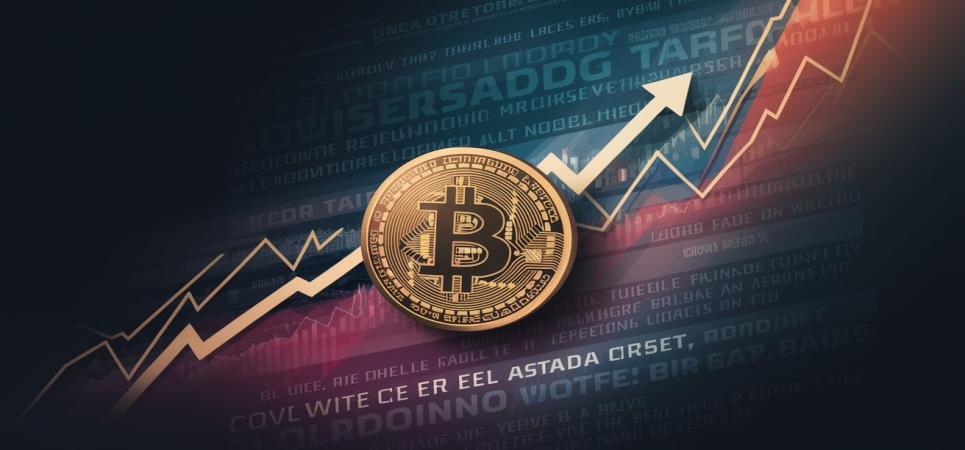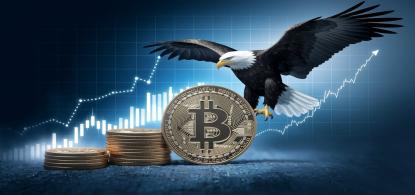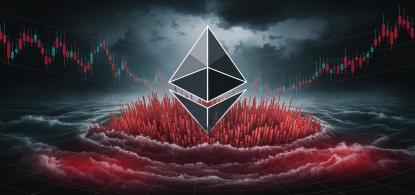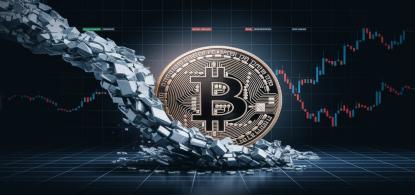
Bitcoin and Altcoins Rally Amid Easing Tariff Concerns?
Bitcoin and Altcoins Rally Amid Easing Tariff Concerns?
Summary
The recent upsurge in Bitcoin and altcoin prices has drawn the attention of investors and market watchdogs. One of the leading reasons behind this crypto boom is the ease of U.S. tariff issues. When tensions in global trade dwindle, especially between large economies like the U.S. and China, global markets generally respond positively. Investors gain confidence and are willing to take risks again, and the market for cryptocurrencies gets an edge.
Geopolitical events such as trade wars and tariffs have always affected traditional financial markets to some degree. Today, however, one can see that such events are affecting digital assets too. For example, whenever trade policies cause uncertainty or the U.S. dollar weakens due to tensions, investors search for alternative assets such as Bitcoin. They believe that crypto will protect their funds from inflation and currency value depreciation — that's why Bitcoin has been called "digital gold" at times.
Moreover, institutional investors may return to the crypto space when economic times are improved. As tariffs reduce and trade becomes smoother, big players like banks and investment firms may once again start investing in digital assets, boosting the strength and confidence of the market.
Introduction
In the fast-evolving world of cryptocurrencies, news and global events can cause enormous price movements. One such event recently generated a fresh wave of buzz in the crypto community. Bitcoin and a few altcoins (other cryptocurrencies apart from Bitcoin) saw a good rally — i.e., their prices went up — after some positive news about world trade. Investors around the world soon felt hopeful again because tension among key countries, especially concerning tariffs (export and import taxes), began easing. This easing of tariff concerns injected new energy into both traditional and digital markets.
Tariffs tend to create fear and uncertainty in the market. When two big countries, like the United States and China, or others, impose tariffs on each other's goods, it harms world trade. Businesses become nervous, consumers consume less, and markets decline. But when governments signal that they are reducing or removing tariffs, markets tend to react positively. Some positive news recently came through that trade talks were going in a good direction. Thus, investors were more hopeful and began investing in riskier assets again — and one of the best risk assets today is cryptocurrency.
The biggest and most well-known cryptocurrency, Bitcoin, reacted quickly to this bullish sentiment. Its price rose quickly, showing that investors were ready to take risks again. Other virtual currencies, or altcoins — like Ethereum, Solana, Cardano, and Ripple — also saw their prices skyrocketing. Such a kind of market movement is often described as a "rally," wherein multiple crypto coins surge in value all at the same time. Traders, analysts, and cryptocurrency followers all started to speculate on whether or not this might be the beginning of an extended-term bull market (a period where prices continue upward).
One of the reasons why this rally happened can be because investors are looking for safe but yielding alternatives away from conventional banking systems. With world economies still shaken by inflation and rate hikes, crypto is becoming popular again. Further, most individuals have a feeling that Bitcoin is "digital gold" — something that does not depreciate when everything else is going downhill. Thus, when trade tensions ease and the financial environment seems to be stable, more people will be brave enough to invest in crypto again.
Table of Contents:
-
Are Bitcoin and Altcoins rallying in response to easing U.S. tariff concerns?
-
How do traditional geopolitical events, like Trump’s tariff policies, typically impact the crypto market?
-
Is the current rally in crypto markets a short-term reaction or a sign of long-term investor confidence?
-
Could easing tariffs lead to renewed institutional interest in Bitcoin and other digital assets?
-
Are investors shifting from traditional assets to crypto due to uncertainty in global trade policies?
-
What role does U.S. economic policy play in influencing Bitcoin’s price movements?
-
Is the crypto market becoming more resilient to macroeconomic pressures like tariffs and trade wars?
-
Could the weakening of the dollar due to trade disputes be indirectly benefiting crypto markets?
-
Conclusion
-
Frequently Asked Questions (FAQ's)
Are Bitcoin and Altcoins rallying in response to easing U.S. tariff concerns?
Are Bitcoin and altcoins on the rise due to easing tensions over U.S. tariffs? It seems that way. Recently, there have been some pieces of good news regarding the possibility of the U.S. lessening or changing tariffs — the taxes on merchandise imported from other countries.
This type of news leads investors to be more confident and optimistic about the global economy. As fewer fears about trade between countries prevail, people tend to invest money in riskier assets like cryptocurrencies.
That is why we are seeing a hike in Bitcoin's and the majority of altcoins like Ethereum, Solana, etc., prices. Such price appreciation is known as a "rally" and means that allaying tariff concerns can be one among many reasons for the new fad for crypto.
How do traditional geopolitical events, like Trump’s tariff policies, typically impact the crypto market?
Historical geopolitical events such as Trump's tariffs significantly influence the crypto market. When politicians such as Trump raise tariffs or implement tough trade policies, they instill fear and uncertainty in the global economy. Stock markets tend to go down, and individuals become frugal with money.
At these times, investors invest in "safer" cryptocurrencies like Bitcoin because they feel that they are secure or profitable. At times "good" news like decreasing tariffs or normalizing trade relations, people feel safe and could start investing in stocks and crypto again. Therefore, crypto prices go up or down depending on how safe or unsafe the world economy feels.
Is the current rally in crypto markets a short-term reaction or a sign of long-term investor confidence?
The current rally in cryptocurrency prices could be temporary in nature and a lead-up to sustained optimism. Currently, the prices of Bitcoin and other cryptocurrencies are rising on the back of positive news, like easing U.S. tariff concerns.
This type of news typically causes an abrupt, short-term market boom as investors react positively. But if other investors hold out hope for the future of crypto and consider it a worthwhile investment option, this boom could become a sustained trend. It's all in the hands of how the global economy, regulatory climate, and investor demand evolve in the coming few months.
Could easing tariffs lead to renewed institutional interest in Bitcoin and other digital assets?
Yes, relaxing tariffs might have larger institutions once more willing to consider Bitcoin and other cryptocurrencies. With trade tensions decreasing, the global economy overall feels safer. That leaves banks, investment companies, and other large institutions more at ease with investing in riskier assets such as cryptocurrencies.
If they believe that the market is going to grow and stay solid, then they can start investing in Bitcoin, Ethereum, and others again. Thus, enhanced trade relations and lower tariffs can motivate large traders to come back to the crypto market, and prices and digital asset confidence will be pushed higher.
Are investors shifting from traditional assets to crypto due to uncertainty in global trade policies?
Indeed, the majority of investors are now shifting from traditional assets to crypto because of uncertainty in international trade policies. When there is tension or uncertainty among countries — like trade wars, tariffs, or changing import-export policies — traditional markets such as stocks or bonds become unpredictable.
In order to secure their funds or get a return on them that is more superior, some investors look to using cryptocurrencies like Bitcoin as an option. Crypto appears to some people as beyond government policy control and thus attractive at times of unrest. As a result, trade fears on an international scale are likely to compel people to explore digital assets as a safer or more prudent choice.
What role does U.S. economic policy play in influencing Bitcoin’s price movements?
The price action of Bitcoin is highly influenced by U.S. economic policy. Whenever the U.S. government makes a decision on interest rates, inflation management, taxation, or trade policy, it influences investor sentiment globally — including the crypto market. For example:
-
If interest rates rise, people may choose safer assets like savings accounts or bonds, reducing demand for Bitcoin
-
If inflation rises, investors employ Bitcoin as a "store of value" to hedge against their cash
-
When trade policy (tariffs) induces tension, investors turn to alternative assets like crypto to hedge risks in traditional markets
-
If the U.S. adopts innovation and positive crypto regulation, it can instill trust and push additional investment into Bitcoin.
Is the crypto market becoming more resilient to macroeconomic pressures like tariffs and trade wars?
The crypto market is slowly becoming desensitized to macroeconomic stimuli like tariffs and trade wars but is not immune to them. In the initial stages, crypto prices would react vigorously to global news and economic policies. But now that the market matures and more people understand how crypto functions, it is showing stability signs.
For example, even with trade wars or tariff news sending shivers down stock markets' spines, crypto does not necessarily fall apart — it even increases at times. This shows that investors may be starting to view crypto as a hedge (insurance) against traditional market problems.
In addition, with increasingly long-term holders, institutional investments, and global adoption, the crypto market no longer fluctuates due to hype or fear. Yet, it may react to major economic indicators, but no longer as inconsistently as it used to.
Could the weakening of the dollar due to trade disputes be indirectly benefiting crypto markets?
Yes, the decline of the American dollar because of trade tensions can also impact crypto markets like Bitcoin and altcoins in a positive manner indirectly.
This is how it works in simple terms:
-
When trade wars happen — like tariff wars among big countries — they can hurt the U.S. economy. As a result, the value of the dollar may drop. When the dollar drops in value, investors will typically look elsewhere to invest to protect its value. One of those places is cryptocurrency
-
Bitcoin, for example, is normally known as "digital gold" since people regard it as a secure asset free from any kind of government regulation. So when the dollar loses value, investors shift to Bitcoin and other cryptocurrencies as a hedge against currency risk
-
Also, when the dollar declines, it gets less expensive for individuals overseas to purchase Bitcoin, and that can drive global demand — and that demand can be what fuels crypto prices higher.
Conclusion
In recent times, the cryptocurrency market — especially Bitcoin and altcoins — has shown strong movement due to changes in global economic and political situations. One of the main reasons for the recent rally in crypto prices is the easing of tariff concerns, particularly in the United States. When trade tensions between powerful countries like the U.S. and China start to reduce, global markets feel more stable. This positive mood has spread across all investment sectors, including cryptocurrencies.
Tariffs, which are taxes on goods traded between countries, often create fear and confusion in the market. Companies are concerned about increased costs, and investors hesitate with their capital. But if there is some good news — say, that tariffs will be reduced — everybody is more cheerful. They will invest in assets with a higher return, although they are riskier. That's where Bitcoin and other cryptocurrencies come in. These digital assets tend to appreciate when investor optimism picks up.
Concurrently, we observe that U.S. economic policies, e.g., interest rate actions, inflation management, and trade approaches, have a significant impact on the crypto universe. When the American dollar declines from trade tensions or political concerns, most investors turn to Bitcoin as a more secure vehicle to lock in the worth of their currencies. Others also equate Bitcoin to "digital gold" since it is restricted in supply and is not under the control of any government.
Frequently Asked Questions (FAQ's)
Que: Why are Bitcoin and altcoins increasing now?
Ans: Bitcoin and altcoins are increasing because of positive news about easing U.S. tariffs. When trade tensions relax, investors feel more confident and invest in risk assets like cryptocurrencies.
Que: What are tariffs, and how do they affect the crypto market?
Ans: Tariffs are levies placed on traded goods between countries. High tariffs can cause fear in the market. Such fear, at times, makes people invest in crypto as a safe or alternative investment.
Que: Can U.S. economic policies change the price of Bitcoin?
Ans: Yes. Federal interest rate policies, inflation policies, trade policies, and tax policies can affect investor attitudes. If people feel that the U.S. economy is not robust, they can move money into Bitcoin and other cryptocurrencies.
Que: Is this crypto rally short-term or long-term?
Ans: It's hard to tell. The rally can be a temporary reaction to current news, or it can hold up if investor trust in crypto keeps growing. It all hinges on how the global economy performs going forward.
Que: Do trade wars benefit the crypto market?
Ans: Sometimes yes. Trade wars destabilize established markets and the dollar. This can have some investors put their money into crypto, which pushes prices higher.





